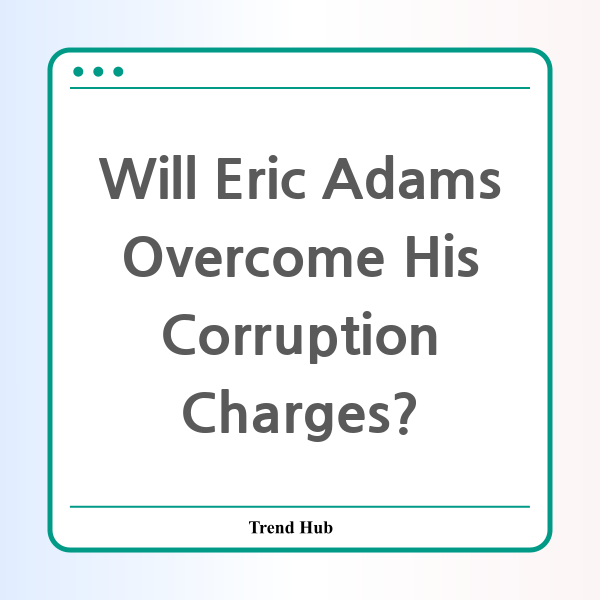* This website participates in the Amazon Affiliate Program and earns from qualifying purchases.

Is New York City Mayor Eric Adams on the brink of political redemption or disaster? As he prepares to face federal corruption charges in a trial scheduled for April, recent developments have stirred discussions regarding the future of his administration and his reelection campaign. Rumors are swirling that the Justice Department may consider dropping the case against him. But what does this mean for Adams, the city, and the broader implications of political integrity in America?
Just a few years into his tenure, Adams finds himself at a crossroads. With his reelection campaign gearing up, the potential for criminal charges looms large. However, according to reports, senior Justice Department officials and federal prosecutors have engaged in conversations about possibly dropping the corruption case against him. This raises questions about the motivations behind such discussions and the implications for public trust in government.
Adams has consistently maintained his innocence, asserting that he has followed the law and acted ethically during his time in office. Nevertheless, the fact that he has been charged and is facing trial casts a long shadow over his leadership. The outcome of this case will not only impact Adams personally but also influence the political landscape in New York City.
As the trial date approaches, political analysts are keen to assess how this uncertainty will affect Adams' campaign strategies. Historically, politicians facing legal troubles have had to navigate treacherous waters, often leading to diminished public support. In Adams’ case, winning over voters while battling federal allegations poses a unique challenge. It is essential for him to not only reassure the public about his integrity but also to showcase his accomplishments as mayor.
In the arena of public opinion, the narrative surrounding corruption is particularly sensitive. Voters tend to be disillusioned when their leaders face legal troubles, viewing it as a breach of trust. In cities like New York, where public perception plays a vital role in political survival, Adams must work diligently to maintain and rebuild confidence among his constituents.
One significant aspect to observe is how Adams' opponents will leverage this situation. They are likely to capitalize on his legal woes to question his capability and readiness to serve another term. This is a common tactic in political campaigning, where adversaries aim to create doubt about a candidate's leadership abilities and integrity.
Furthermore, the implications of dropping the charges could send mixed signals about accountability in politics. If the Justice Department decides to step back, it could be interpreted as a lack of commitment to pursuing corruption in high offices. This might foster a sense of complacency among current and future officeholders, thinking they can evade accountability.
In conclusion, as Mayor Eric Adams stands at this pivotal moment, the decisions made by the Justice Department will reverberate beyond his immediate future. The potential for dropping the case raises complex questions about political integrity, public trust, and electoral dynamics. Whether Adams can effectively navigate these challenges and emerge victorious in his reelection campaign will depend on a myriad of factors, including the evolving legal landscape and how he addresses the public's concerns. The coming months promise to be crucial not just for Adams, but for the entire political climate of New York City.
* This website participates in the Amazon Affiliate Program and earns from qualifying purchases.